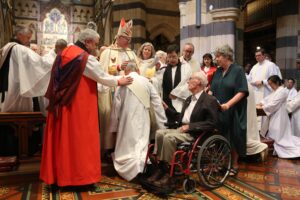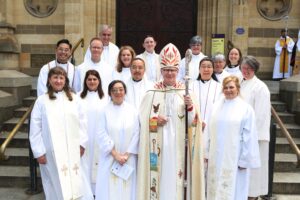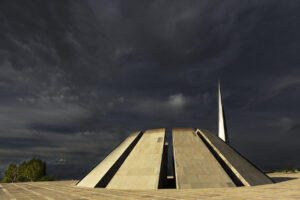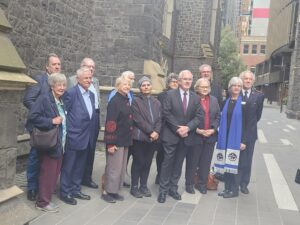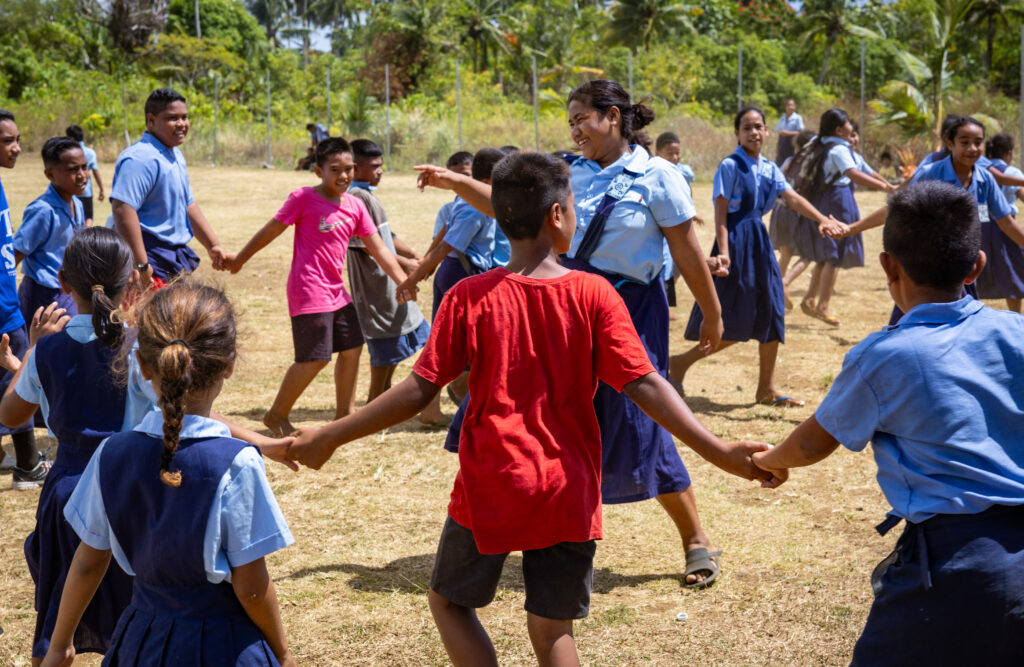
Jenan Taylor
18 November 2024
Faith representatives are encouraging decision-makers to rapidly secure bold climate agreements that will give hope to vulnerable communities, and protect the planet, at the annual United Nations climate summit.
Leaders from diverse religious backgrounds warn disadvantaged communities in particular are dealing with multiple crises including increased hunger, illness, and dispossession because of intensifying climate-related conditions such as deadly heatwaves and storms.
They believe this climate emergency, coupled with rising challenges such as geopolitical conflict, demands urgent, unified and bold action from negotiators at the UN Conference of Parties 29th session in Azerbaijan.
It comes as revelations of political interference from oil and gas lobbyists, anxiety about US president-elect Donald Trump’s potential climate policy, and boycotts amid rifts between countries and interest groups, clouded the first week of COP29.
Melbourne Anglican and COP29 Interfaith Committee Liaison member Bishop Philip Huggins said delegates from about 200 countries aimed to reach agreement on climate policies affecting fragile and conflict-gripped nations, and transitioning away from fossil fuels.
Read more: ‘We need to act urgently, we need to raise our ambitions’: Climate action week
He said the most important role religious leaders played was encouraging negotiators to be clear and inspirational about what was needed to avoid and address climate catastrophe.
“The gospel calls us to be loving, better people and for humankind to be at its best,” Bishop Huggins said.
“To have people from different religious backgrounds, who represent all genders, nationalities and cultures, standing together for urgent change here gives people hope in the midst of fear and hate. This is modelling that is really crucial.”
He said faith representatives emphasised the importance of just climate financing and encouraged decision-makers from wealthier nations to secure increased contributions to support disadvantaged populations.
They also asked negotiators to consider eliminating or reducing poorer countries’ foreign debts and create grants to enable them to mitigate against climate change, adjust to it, and recover and repair after disaster.
Bishop of Tonga and Niue Cardinal Soane Mafi said the connection between debt and climate disaster in Pacific Island nations was significant, in a report Caritas Australia launched at COP29.
Cardinal Mafi said action needed to be taken to forgive debt and prevent it in the future.
“In many developing countries, and countries that are vulnerable to climate change, governments are paying more in interest and other debt servicing obligations than they are on health, education, or climate adaptation,” he said in a statement.
Read more: ‘Our role is to deal with suffering now’: Pacific churches leader
Bishop Huggins said it was important nations’ diplomats quickly, and through intelligent bipartisan cooperation, lifted their commitment to reducing emissions.
He said the highest quality cooperation was essential because making the transition from a carbon to a renewable economy was a complex undertaking.
“There’s not much time to make a transition because this is an emergency. Many emergencies, like when there’s a bush fire or flood, often bring out the best in us, but everyone needs to be at their best to make this shift to net zero global carbon emissions as soon as possible,” he said.
“We really must focus on accomplishing this. Everything else is at risk unless we do.”
The climate summit started on 11 November and runs until 22 November.
For more faith news, follow The Melbourne Anglican on Facebook, Instagram, or subscribe to our weekly emails.

